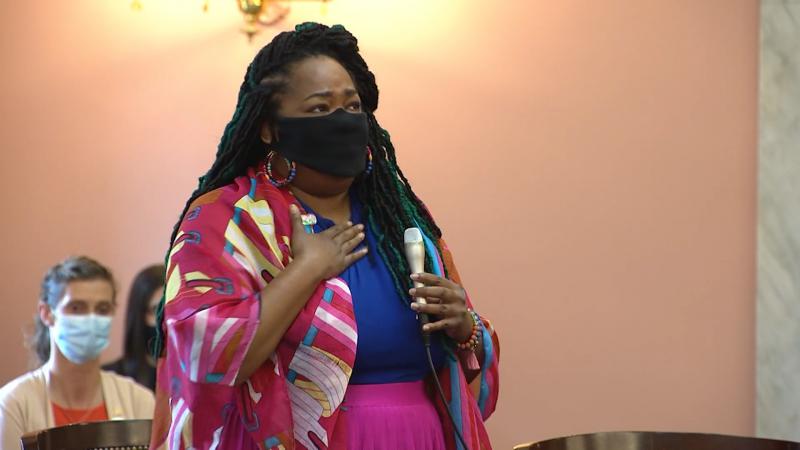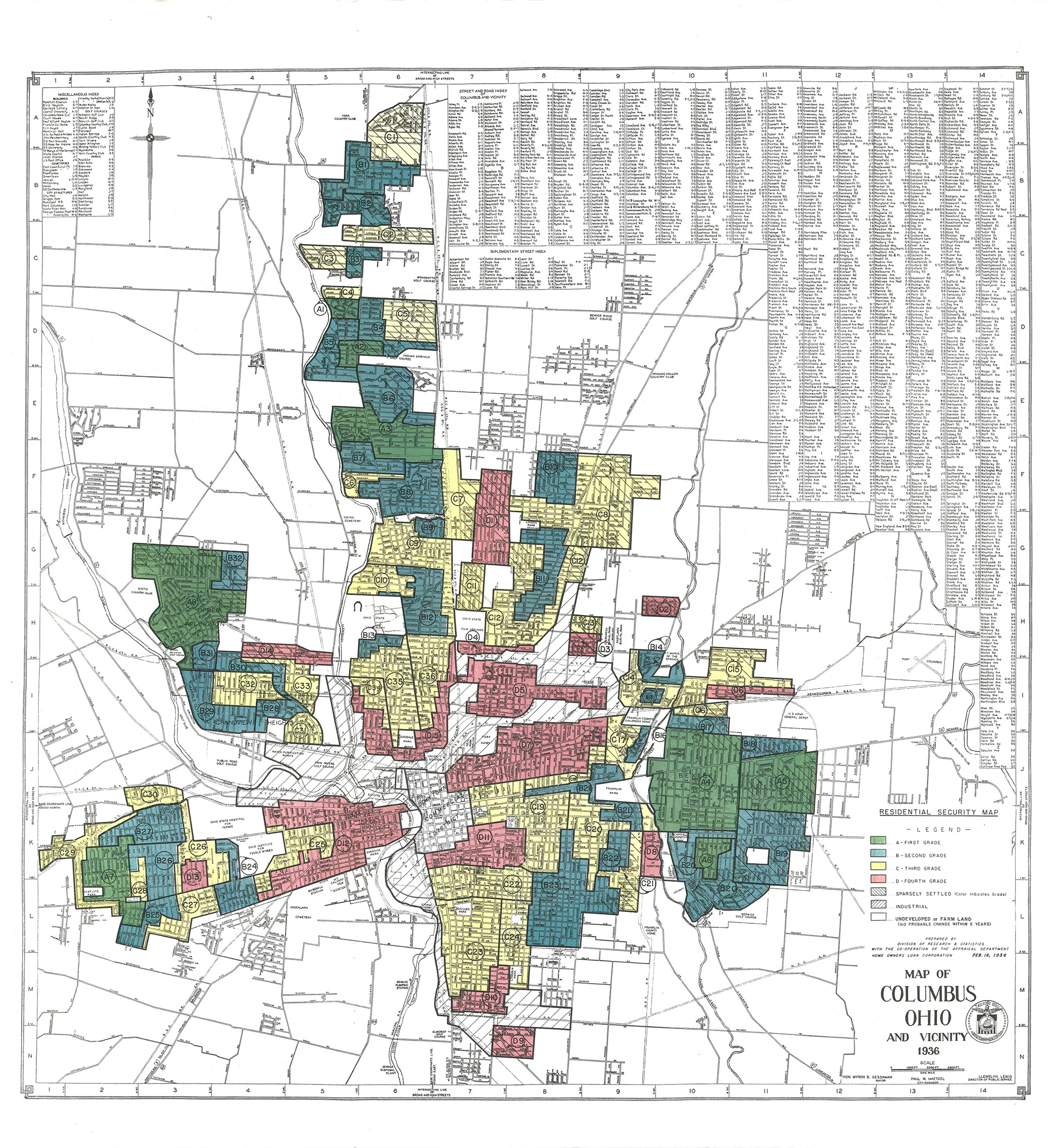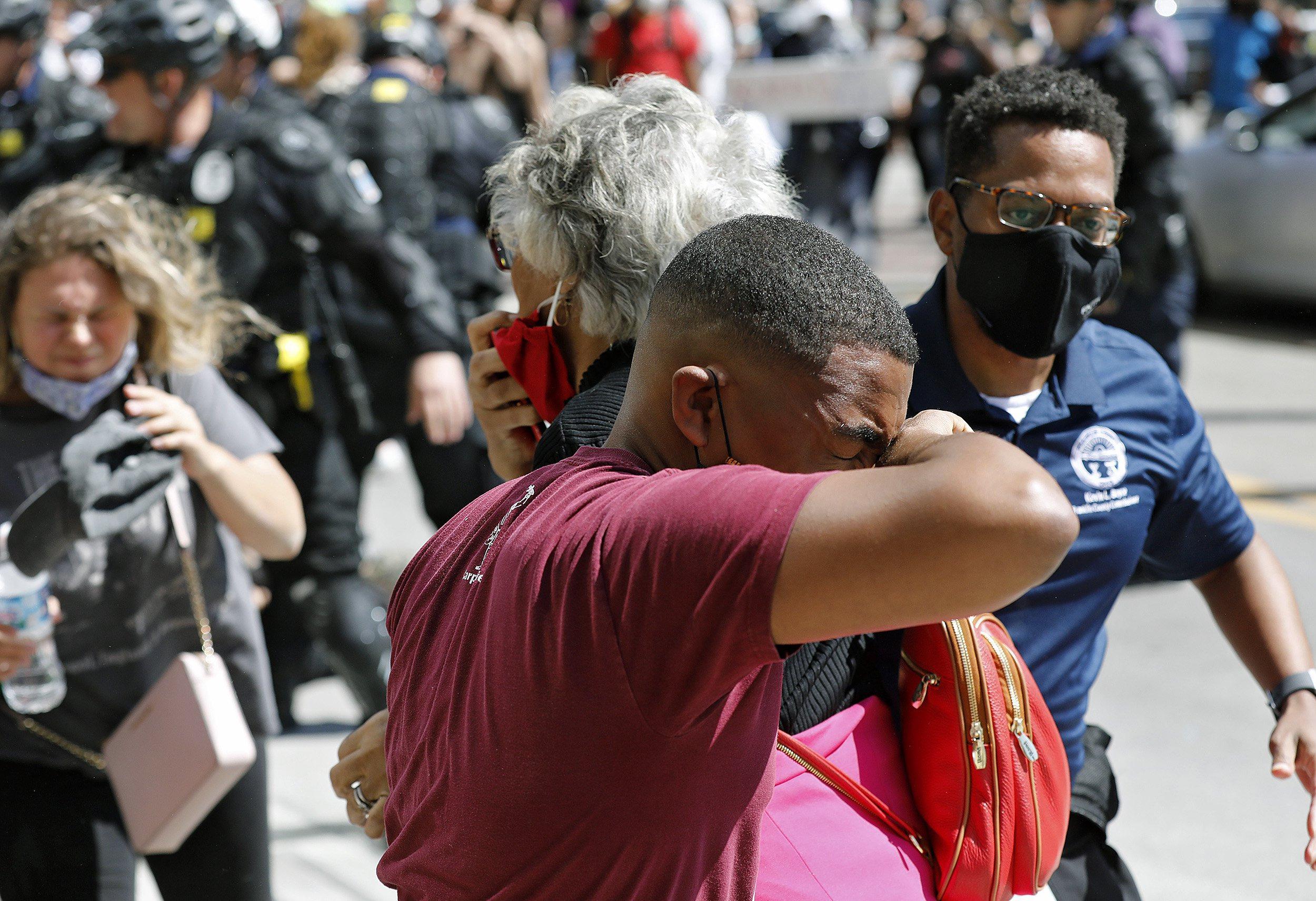
Share On Social!
Systemic racism makes it harder for Latinos and other people of color to get healthcare, housing, transportation, education, employment, healthy food, safe treatment by police, and more.
How can cities and states take a meaningful step to address racism?
Declare racism a public health crisis.
That’s what cities and counties in Ohio are doing, with a commitment to:
- Incorporate educational efforts to dismantle racism.
- Review all portions of codified ordinances with a racial/ethnic equity lens.
- Prioritize policies that will have the most beneficial health impact on people of color.
- Train elected officials, staff, funders and grantees on workplace biases and how to mitigate them.
“Through race-conscious policy-making, we’ve got to unwind the generations of racist policies in housing, public health, education, and elsewhere,” said Shannon G. Hardin, council president in Columbus, Ohio. “On corporate boards and in the philanthropic sector we need to see clear, measured strategies to combat racial disparities.”
Franklin County Declares Racism a Public Health Crisis
On May 12, the Franklin County Board of Health in Ohio declared racism a public health crisis.
They also committed to:
- Create an equity and justice-oriented organization to identify specific activities, policies and procedures to embrace diversity and incorporate antiracism principles across the agency, leadership, staffing, and contracting. This will include a plan to understand, address, and dismantle racism and provide tools to engage actively and authentically with communities of color.
- Advocate for relevant policies that improve health in communities of color, and support local, state, regional, and federal initiatives that advance efforts to dismantle systemic racism.
- Build alliances and partnerships with other organizations that are confronting racism.
- Encourage other local, state, regional, and national entities to recognize racism as a public health crisis.
One week later, Franklin County Commissioners declared racism a public health crisis. They also resolved to enhance educational efforts aimed at understanding, addressing and dismantling racism and how it affects the delivery of human and social services, economic development and public safety.
The commissioners also called on the state governor, house speaker, and senate president to declare racism as a public health crisis and inject equity in all Ohio state policies.
“Hundreds of years of systemic racism, from slavery to segregation, redlining to Jim Crow, and discrimination in housing, finance, and education, some of which persists today, have led to predictable inequities,” said Franklin County Commissioner Marilyn Brown.

Columbus Approves Resolution Declaring Racism a Public Health Crisis
On June 1, the Columbus (Ohio) City Council adopted a resolution declaring racism a public health crisis. The resolution also recommits their full attention to improving the quality of life and health of Black, Latino, and other people of color.
“Columbus is committed to honestly and directly addressing minority health inequities, including a systematic, data-driven focus on poverty, economic mobility, and other factors that impact the social determinants of health,” the resolution states.
Hardin, head of the Columbus City Council, called on local leaders to take specific actions to reform policing. These are based on 80 recommendations regarding recruitment, training, de-escalation, crisis intervention, implicit bias, and use of force policies in the 2018 Columbus Community Safety Advisory Commission Report.

“Having experienced it first-hand, we need to change the use of crowd disbursal techniques and stop spraying dangerous gases into peaceful crowds,” Hardin said. “The negative impacts far outweigh the temporary control it gives officers.”
Cleveland Approves Resolution Declaring Racism a Public Health Crisis
On June 3, the Cleveland City Council approved an emergency resolution declaring racism a public health crisis. “The negative repercussions of historical racism, including but not limited to discriminatory lending practices of the 20th century known as ‘redlining,’ impact current outcomes regarding access to nutritious food, economic security, educational achievement, rates of lead poisoning, and infant mortality,” the resolution states.
Cleveland’s resolution also established a working group to promote racial equity in Cleveland.
The working group is required to continue promoting racially equitable hiring and promotion practices, as well as economic and workforce development. The group will also advocate and draft relevant policies that prioritize the health of people of color and mitigate exposure to adverse childhood experiences and trauma in childhood.
Ohio Introduces Legislation Declaring Racism a Public Health Crisis
On June 2, the Ohio Legislative Black Caucus introduced state-level legislation to declare racism a public health crisis, and ask the Governor to establish a working group to promote racial equity in Ohio.
“What we are witnessing around the country is a community simply begging to be seen and heard,” said bill sponsor Rep. Stephanie Howse. “Racism is real and it is the biggest public health threat citizens of color face.”
“The American Psychological Association says that, because of poverty and discrimination, racial minority children are more likely to experience traumatic events than white children, and that childhood trauma has negative impacts on academic, behavioral, and physical health outcomes,” the bill states.
If adopted, the General Assembly will commit to reviewing all portions of the Revised Code with a racial equity lens. The working group will encourage stakeholders in education, employment, housing, and criminal justice and safety to recognize racism take appropriate action.
“Ohio must address racism by developing policy to address racial equity to protect all Ohioans not just certain people,” said Representative Juanita O. Brent. “There are racial disparities in healthcare, housing, workforce development and every fabric of our system. All Ohioans must feel protected.”
The American Public Health Association (APHA) has resources and tools on racism and public health.
“We see discrimination every day in all aspects of life, including housing, education, the criminal justice system and employment. And it is amplified during this pandemic as communities of color face inequities in everything from a greater burden of COVID-19 cases to less access to testing, treatment and care,” according to the APHA’s statement May 29. “Americans cannot be silent about this.”
Take Action: Get Your City to Declare Racism a Public Health Crisis!
Since 2019, 24 resolutions nationwide have been introduced or adopted, according to the Network for Public Health Law.
“The language of these resolutions, alone, cannot repair the health deficit American institutions have left for communities of color,” according to the Network for Public Health Law. “However, these resolutions can jump start critical efforts to assess the barriers to health created by current laws.”
Download the free Salud America! “Get Your City to Declare Racism a Public Health Crisis” Action Pack to get input from local advocates of color, start a conversation with local leaders, and build local support for a resolution to declare racism a public health issue along with a commitment to take action to change policies and practices.
The Action Pack was created by Dr. Amelie G. Ramirez, director of the Salud America! Latino health equity program at UT Health San Antonio.
These declarations are “long overdue” and “a start” to toward lasting, meaningful change, said Dr. Allison Agwu, an infectious disease specialist and associate professor at Johns Hopkins School of Medicine, told The Guardian.
“If you declare something an emergency, you’re also saying it’s imperative to address the problem,” Agwu said.
By The Numbers
3
Big Excuses
people use to justify discriminatory behavior



